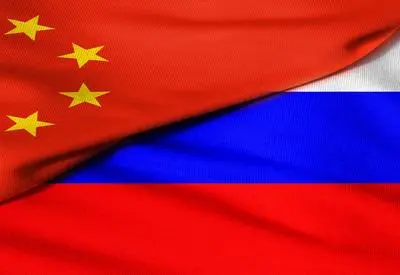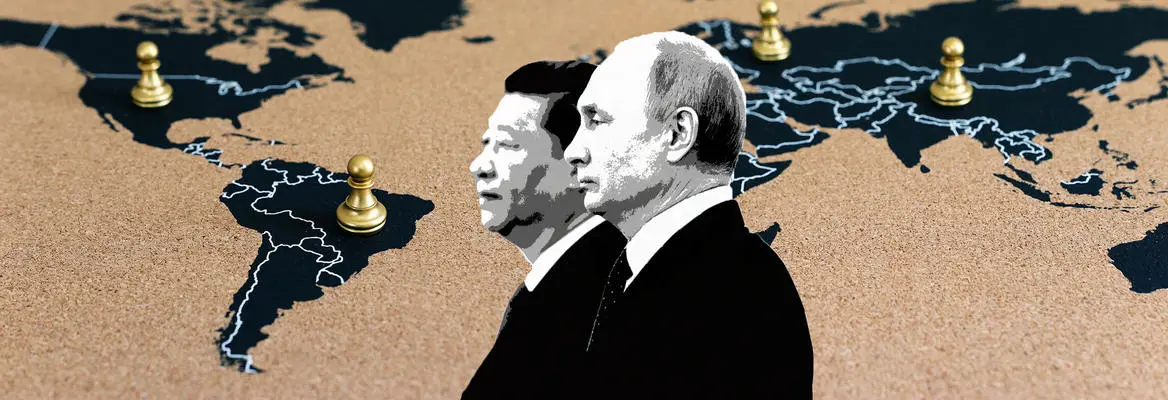We instinctually ascribe political and strategic genius to the authoritarians of the world. One American commentator described Putin as a "grandmaster of chess" when it comes to strategy. But anyone that acts as a tyrant over the people of their country, and causes the pain and suffering of a war, is no genius, writes Yaron Brook and Elan Journo.
No death toll can truly capture the devastation that Stalin, Hitler, Mao, Pol Pot, and their ilk inflicted upon the world. The engineered Great Famine in Ukraine (Holodomor), the Holocaust, the Cultural Revolution, and the Killing Fields of the twentieth century should have taught us to evaluate dictators properly. But, depressingly, many politicians and intellectuals persist in misreading dictators.
 SUGGESTED READING
How the West got Russia and China Wrong
By Aaron Friedberg
For example, when Ayatollah Khomeini of Iran was rising to power, he found admirers among Western intellectuals. In 1979 Richard Falk, a professor of international law at Princeton, dismissed concerns about Khomeini’s political vision of Islamic totalitarianism. Falk suggested that “Iran may yet provide us with a desperately-needed model of humane governance for a third world country.” That’s not been the experience of Iranian women who are brutalized and jailed for failing to wear hijab; nor of gays executed by public hanging; nor of any Iranians who value their freedom; nor of any of the victims of Iranian-backed Islamist terrorism.
SUGGESTED READING
How the West got Russia and China Wrong
By Aaron Friedberg
For example, when Ayatollah Khomeini of Iran was rising to power, he found admirers among Western intellectuals. In 1979 Richard Falk, a professor of international law at Princeton, dismissed concerns about Khomeini’s political vision of Islamic totalitarianism. Falk suggested that “Iran may yet provide us with a desperately-needed model of humane governance for a third world country.” That’s not been the experience of Iranian women who are brutalized and jailed for failing to wear hijab; nor of gays executed by public hanging; nor of any Iranians who value their freedom; nor of any of the victims of Iranian-backed Islamist terrorism.
Remember when Bashar al-Assad of Syria was seen as a savvy “reformer,” invested in the welfare of his people? Except that he became notorious for inflicting chemical weapons on his subjects. Mohammad Bin Salman of Saudi Arabia was breathlessly hailed as a forward thinking, capable leader: yes, the selfsame MBS who ordered the hit and literal butchering of Jamal Khashoggi, a Saudi journalist affiliated with the Washington Post.
But surely the most consequential examples today are Xi Jinping and especially Vladimir Putin.
In the words of one American commentator, Vladimir Putin is like a "grandmaster of chess" when it comes to strategy, whereas Barack Obama "stumbles with checkers." On the eve of Putin's invasion of Ukraine, former Secretary of State Mike Pompeo described the Russian dictator as "very shrewd, very capable," adding "I have enormous respect for him... [Putin] is an elegantly sophisticated counterpart… who is not reckless but has always done the math."
___
The notion of dictators as charismatic, capable strategists is an illusion
___
While Donald Trump was in office, he was one of Putin's superfans and apologists. Trump has described the Ukraine invasion as "genius," later praising Putin for having "taken over a country for $2 worth of sanctions."
This is a severe misreading, and the most obvious evidence can be seen in the battlefields of Ukraine. The reputedly formidable Russian military has struggled against courageous Ukrainians fighting in self-defense. It can also be seen in the extraordinary scale and extent of international sanctions imposed on Russia. But this misreading goes deeper than a strategy that backfired.
The notion of dictators as charismatic, capable strategists is an illusion. The illusion endures partly because they can appear successful, at least for a while. But the truth is that Putin and Xi, like their twentieth century predecessors, are fundamentally impotent.
Charismatic, inspiring loyalty? Oh, come on. They are at war against their own subjugated people.
___
Putin and Xi are not simply politicians who get a few details wrong. They’re wrong all the way down
___





















Join the conversation